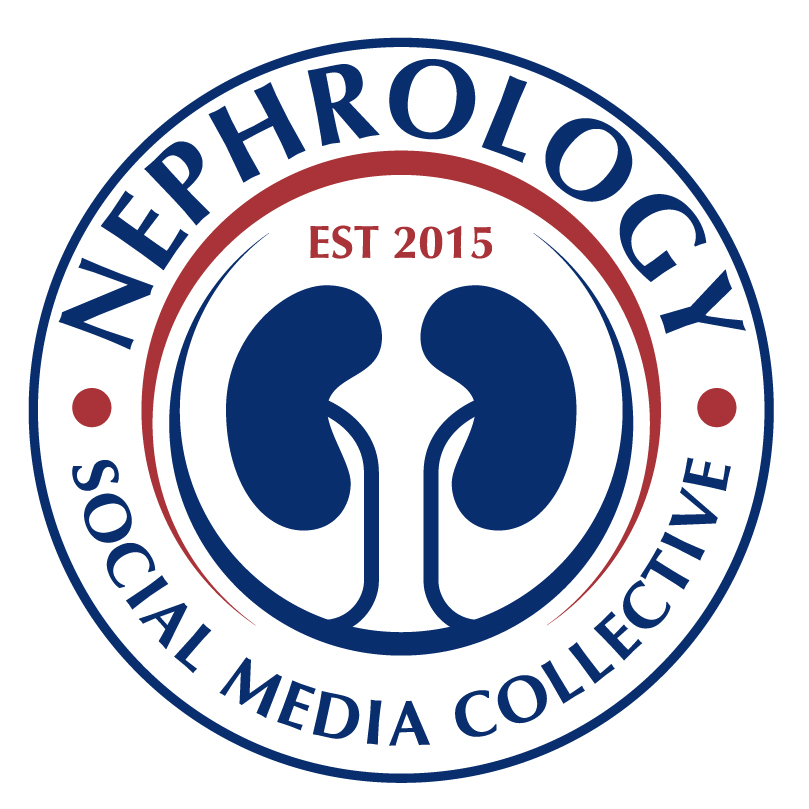In September 2018, RFN announced a partnership with the American Society of Nephrology (ASN). The RFN-ASN partnership is a great opportunity to solidify and ensure RFN remains a valuable asset to future nephrology fellows from around the world. RFN averages 70,000 page views and site visits per month, and 50,000 unique site visits per month. Interest in the site, as reflected in number of unique page views, has continued to grow. Approximately 45% of our readers are fellows, 20% attendings, 20% are residents or medical students and 5% are involved in full time research according to the poll conducted on our website.
RFN is a non-profit educational resource maintained on a voluntary basis. As such, RFN does not endorse nor accept advertisement from industry. If commenters post material that is deemed advertisement reviewers will delete the comment from the site without warning. Furthermore, the site adheres to strict patient confidentiality principles outlined by HIPAA.
RFN Editor (2018-2020)
Samira Farouk, MD, MS is a transplant nephrologist at the Icahn School of Medicine at Mount Sinai, where she completed her internal medicine, nephrology, and transplant training and served as chief fellow. In addition to her research which focuses on the determinants of kidney fibrosis. She is also interested in medical education particularly in regards to medical students, residents, and fellows and is the co-founder of Neph Sim and current ASN Media and Communications Committee Intern. @ssfarouk
RFN Faculty Leads
Gearoid McMahon MB, BCh is an instructor in medicine at the Brigham and Women's Hospital and Harvard Medical School. After completing his clinical training in nephrology and internal medicine in Ireland, he received further training in Nephrology at BWH in epidemiology and clinical research at the NIH’s Framingham Heart Study. His research areas of interest include the epidemiology and genetics of chronic kidney disease as well novel biomarkers of kidney disease and kidney fibrosis. He is currently serving as the Director of the Harvard/Brigham Renal Board Review Course and is an associate editor of the ASN Kidney Self Assessment Program (KSAP). He is a past editor of RFN and has contributed more than 170 articles. @gearoidmm
Matthew A. Sparks, MD is an assistant professor at Duke University Medical Center. He is the associate program director of the fellowship program and director of medical student research. He received his medical degree, completed residency, and was chief resident at the University of Arkansas for Medical Sciences. He completed his nephrology fellowship at Duke. He is a longtime contributor and past deputy editor of RFN. His research interest is in hypertension pathogenesis and the intersection of CKD with pulmonary hypertension. He is also interested in ways to enhance medical education using social media. He is involved in numerous projects including NephMadness, NephJC, NSMC internship, AJKD blog, and KIDNEYcon. He is a member of the ASN Media and Communications Committee and the AHA Kidney and Cardiovascular Diseases Leadership, and Media and Communications Committee. @Nephro_Sparks
RFN Faculty Advisors
Pravir V. Baxi, MD is an assistant professor of Medicine in the Division of Nephrology at Rush University Medical Center in Chicago. He received his medical degree in 2011 from Wayne State University School of Medicine in Detroit. He completed his Internal Medicine Residency and subsequent Nephrology Fellowship at Rush. His clinical interest is in the management and treatment of glomerulonephritis. He enjoys teaching and has become involved in promoting medical education via several social media platforms. He currently serves as a co-director of the GlomCon Interactive Fellows’ Curriculum which aims to enhance the education of trainees and connect training programs to foster a culture of collaborative learning. @Proximal_Baxi
Anna Burgner, MD, MEHP is an assistant professor in nephrology at Vanderbilt University Medical Center, and the associate nephrology fellowship program director. She completed her internal medicine residency and nephrology fellowship at Vanderbilt. After completing her nephrology fellowship, she obtained a Master of Education in the Health Professions from Johns Hopkins University. Her time is split between clinical practice, teaching medical students, residents, and fellows, and clinical research. Her clinical interests are broad and include treatment of kidney diseases during pregnancy, prevention of kidney stones, and transitioning pediatric nephrology patients to adult nephrology clinics. Her research interests include slowing the progression of kidney disease, particularly diabetic nephropathy, hypertensive nephrosclerosis, and polycystic kidney diseases. She also serves on the ASN Media and Communications Committee. @anna_burgner
Kelly Hyndman, PhD is an assistant professor in the Division of Nephrology at the University of Alabama at Birmingham. Dr. Hyndman is a basic scientist whose research focuses on the physiological role of histone deacetylase (HDAC) enzymes in the regulation of fluid-electrolyte balance in mammalian models. However, deranged HDAC activity correlates with a number of cardiovascular and renal diseases, and in the setting of ischemia/reperfusion injury, Dr. Hyndman’s lab is investigating the putative contribution of HDACs in the progression of chronic kidney disease. She also serves on the ASN Media and Communications Committee. @DrKeeksPhD
Jennie Lin, MD is an assistant professor of medicine in the Nephrology and Hypertension Division at Northwestern University Feinberg School of Medicine. She is a NIH K08 funded physician-scientist whose research is focused on functional -omics studies of cardiometabolic and kidney diseases. Her group focuses on (1) the role of RNA biology in mechanisms of lipid metabolism, atherosclerosis, and renal fibrosis and (2) functional interrogation of the molecular mechanisms by which novel genes identified through human genetics studies impact disease phenotypes. Outside of work, she loves spending time playing with her beagle Penelope and her beagle-basset Calvin, enjoying introvert time on her Kindle, and bragging about her Texan roots, and eating her way through Chicago. @jenniejlin
Andrew Malone, MB BCh is an assistant professor of medicine in the Division of Nephrology at Washington University in St. Louis. He received his medical training and residency in Dublin and subsequently completed a clinical/research fellowship at Duke University Medical Center. In addition he completed a transplant fellowship at Washington University in St. Louis. His interests are in transplantation, FSGS, antibody-mediated rejection. His research is focused on elucidating mechanisms of kidney injury in kidney transplantation using single cell RNA sequencing. @AndrewFMalone
Paul Phelan, MB BCh is a consultant nephrologist and kidney transplant physician at the Royal Infirmary of Edinburgh and an honorary senior lecturer at the University of Edinburgh. He completed medical school, residency, and nephrology training in Dublin and subsequently completed a clinical/research fellowship at Duke University Medical Center. His major clinical interests are kidney transplantation and inherited kidney disease. His research interests are focussed on renal genetics and kidney transplant outcomes and he has been appointed an NHS Scotland Career Research Clinician for this work. His other major interest is modern medical education, particularly the use of online tools and social media to provide mentorship and education. He is a long time contributor to RFN and the AJKD blog and is involved with several social media in Nephrology projects, including NephMadness and NephJC. @PaulPhelan
Faculty advisors and the co-editors meet on a regular basis to discuss editorial content. ASN oversight is provided by the ASN Media and Communications Committee. Contributors are a spread of Nephrology fellows and attendings from across the United States and the United Kingdom. If you are interested in becoming a contributor please contact the editor, faculty leads or advisors.

























